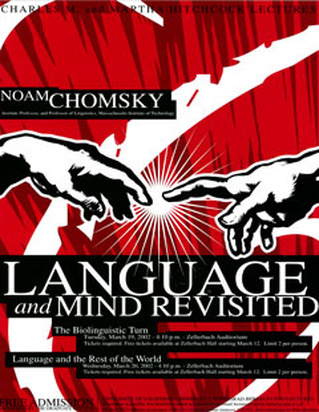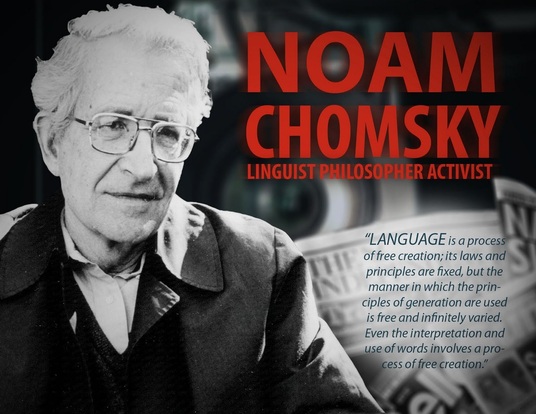Noam Chomsky
Early Life
- Born on December 7, 1928, in Philadelphia.
- Raised in a Hebrew environment and was exposed to anarchist politics, Zionism and anti-Semitism from a young age.
- Enrolled in the University of Pennsylvania and focused his studies on linguistics and philosophy
- In 1955, Chomsky earned his Ph.D. in linguistics, and spent time at Harvard conducting research for his doctorate thesis.
- Four years spent at Harvard eventually led to the publication of one of his books on linguistics, Syntactic Structures.
- Chomsky was also very active in politics and his anti-war views, published in several of his writings, caused controversy and led to several death threats.
- Chomsky is best known for his influence on linguistics, specifically, the development of transformational grammar (constructions of a language by linguistic transformations and phrase structures).
- Believed that formal grammar was directly responsible for a person’s ability to understand and interpret.
- Although Chomsky did not believe that language was innate, he did theorize that animals and humans were both capable of similar types of comprehension.
- However only humans could continue to develop those abilities through a process he called “language acquisition device (LAD).”
- LAD is a hypothesized innate ability present in infants that enables them to construct and internalize the grammar of their native language on the basis to which they are exposed.
- Chomsky thought that if the LAD for all human languages could be discovered, it could result in features that would be universal to all tongues, known as “universal grammar.”
- His linguistic theories are based upon an innate capacity for language, meaning we are hardwired to communicate with words, it is an instinct!
- This is in opposition to empiricism, as it is a theory that states knowledge is a posteriori (derived from observed facts).


